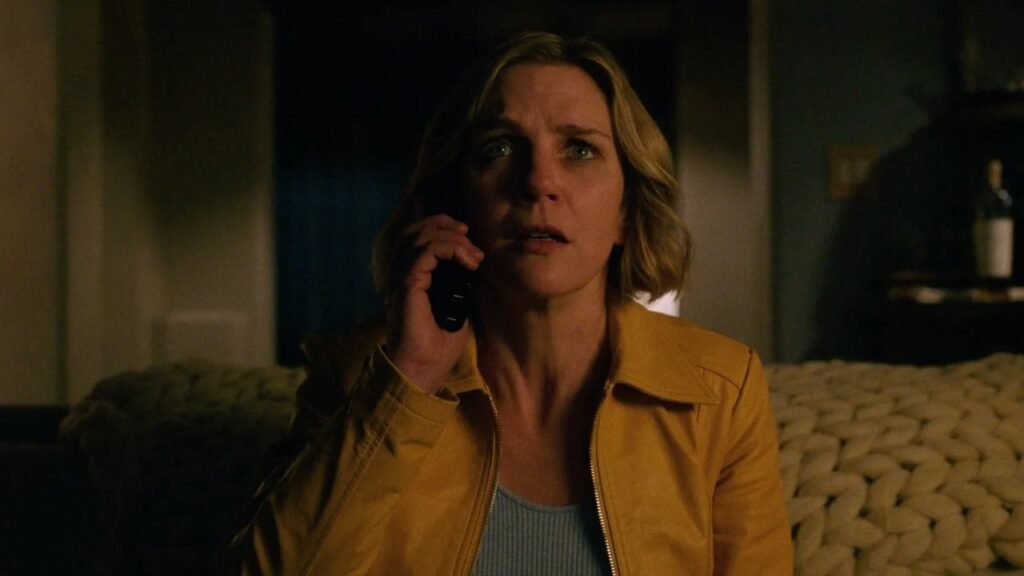When Vince Gilligan, the mastermind behind Breaking Bad and Better Call Saul, announces a new show, expectations naturally soar. With Pluribus, now streaming on Apple TV+, Gilligan once again proves why he is one of television’s greatest storytellers. This time, he trades crime and chaos for something even more unsettling — a world consumed by happiness. What begins as an eerie social mystery soon spirals into a mind-bending psychological thriller that questions the very nature of free will.
A World That Smiles Too Much
The series opens with an unnerving calm. Streets look normal, people are polite, and conversations feel routine — but something is undeniably off. The smiles linger too long. The laughter feels rehearsed.
At the heart of this distorted world is Carol (Rhea Seehorn), a best-selling romance novelist returning home to Albuquerque after a book tour. But the moment she arrives, she senses something wrong. Her friends, her neighbors, even her own publisher behave with unnatural joy. They cannot argue, feel sadness, or even disobey.

When Carol’s partner Helen (Miriam Shor) collapses during a dinner out and later dies under mysterious circumstances, the horror begins to unfold. Hospitals are full of patients afflicted by a strange condition — a global epidemic of forced happiness. Somehow, Carol remains unaffected. And now, she must uncover why.
Vince Gilligan’s Return to Psychological Tension
Gilligan has always excelled at exploring human behavior under pressure, and Pluribus takes that fascination to an extreme. Instead of meth labs and morality, he dives into emotion manipulation and societal control.
The world of Pluribus feels bright and cheery on the surface, yet it’s suffocating underneath — a haunting metaphor for our modern obsession with positivity and social conformity. Every smile hides a scream, and Gilligan masterfully turns happiness itself into the source of terror.
The series balances sci-fi intrigue with philosophical undertones. What happens when free will is replaced with artificial peace? Is joy still joy if it’s programmed?
Rhea Seehorn Shines in a Complex, Layered Role
Rhea Seehorn delivers one of her finest performances to date. As Carol, she brings both fragility and determination to a woman who’s slowly realizing she’s the only one left feeling real emotions. Her grief, anger, and confusion drive the emotional core of the story.
Supporting performances from Karolina Wydra, Peter Bergman, and Samba Schutte enhance the eerie realism of the show. Every character appears both alive and hollow — a reflection of a world that has lost its emotional depth.
A Disturbing Mirror of Modern Society
At its core, Pluribus isn’t just a sci-fi thriller — it’s a commentary on our own times. The series forces viewers to confront uncomfortable questions:
- Have we traded authenticity for comfort?
- Are we being manipulated by the pursuit of happiness itself?
- How much of our joy is truly our own?
Gilligan’s direction ensures these ideas don’t feel preachy. Instead, they seep into the narrative naturally, leaving viewers both unsettled and reflective.
Visuals and Sound That Deepen the Unease
The cinematography is stunning — washed in warm tones that make the happiness look almost toxic. Subtle distortions in camera angles and framing make the viewer constantly question what’s real.
The haunting background score by Dave Porter (a longtime Gilligan collaborator) intensifies every scene. Gentle hums and melodic dissonance underline the duality of beauty and dread that defines Pluribus.
Jay-Ho Verdict: Vince Gilligan Redefines Sci-Fi Storytelling
With Pluribus, Vince Gilligan does not simply deliver another gripping show — he reinvents his storytelling voice. This is Breaking Bad’s moral ambiguity blended with Black Mirror’s eerie futurism, yet entirely unique in tone and execution.
It’s a slow-burn masterpiece — emotional, strange, and deeply human. By turning happiness into horror, Pluribus challenges what it means to be truly alive.























